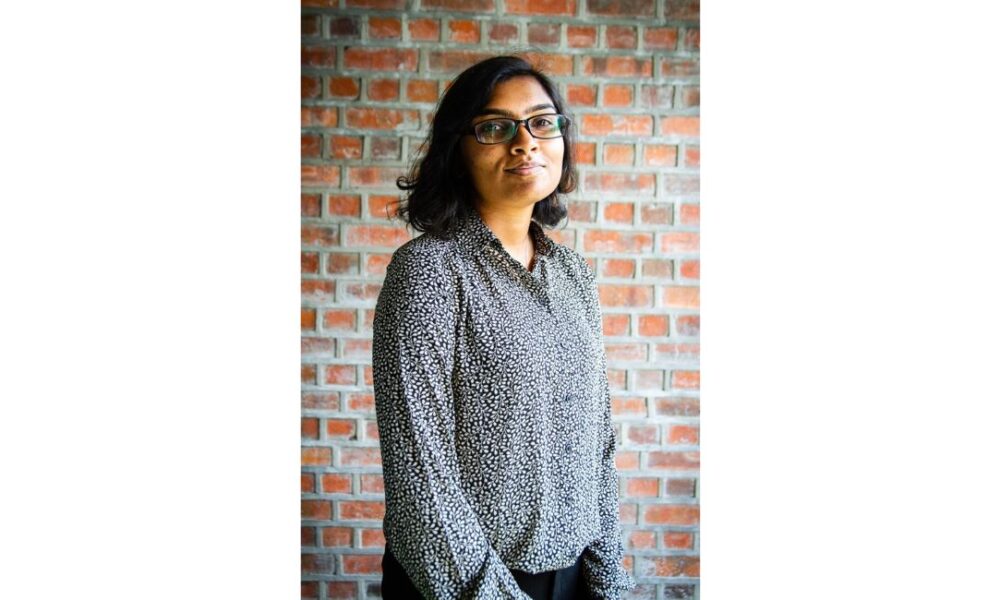Renergy Bumi Hijau: Paving the Way for Sustainable Infrastructure and Community Empowerment

In a world grappling with plastic pollution and infrastructure challenges, one entrepreneur is paving the way for a sustainable future – quite literally.
Sumeshini Subramaniam, founder of Renergy Bumi Hijau, is revolutionizing road construction by transforming plastic waste into green asphalt. But her vision goes beyond eco-friendly materials; it’s about building a bridge between environmental sustainability and social empowerment.
Let’s see how Sumeshini’s innovative approach is reshaping the landscape of green technology innovation and community development in Southeast Asia and beyond.
The Green Asphalt Revolution: Inspiration and Goals
Sumeshini’s journey in sustainability didn’t start with roads. With over a decade of experience in renewable energy and waste management, she’s worked with industry giants like YTL Group and Petra Energy. But it was her frustration with the mounting plastic waste crisis and the desire to create meaningful change, especially in marginalized communities, that led her to found Renergy Bumi Hijau, a company that’s reshaping the future of infrastructure.
At its core, Renergy Bumi Hijau’s green asphalt project is about revolutionizing infrastructure. It incorporates plastic waste into road construction, reducing environmental impact. The project also changes how plastic waste is perceived. According to Sumeshini, plastic waste isn’t a problem to be solved—it’s a resource waiting to be tapped. By demonstrating that waste can be valuable, Sumeshini is challenging industries and communities to rethink their approach to resources and sustainability.
But Renergy Bumi Hijau goes beyond using plastic waste to create green asphalt – it also integrates marginalized communities, particularly women, into the process of creating sustainable infrastructure.

Building Roads, Empowering Communities
While many companies focus solely on the technical aspects of sustainability, Sumeshini’s vision encompasses both environmental and social progress.
One of the most striking aspects of Renergy Bumi Hijau’s model is its focus on empowering women in marginalized communities. By involving women in waste collection and processing, Sumeshini is creating economic opportunities in an industry where women are often underrepresented.
This approach has led to powerful transformations. Women who initially doubted the project now stand proudly beside newly paved green asphalt roads, seeing them not just as infrastructure but as symbols of their work and hope for a better future.
Breaking Ground: Challenges in a Conservative Industry
Introducing a novel concept like green asphalt to the conservative construction industry hasn’t been easy. Sumeshini faced skepticism about the reliability of recycled plastic in road construction. Economic challenges also loomed large, as sustainable production often comes with higher initial costs.
Sumeshini’s approach to these obstacles reveals much about her leadership style. Instead of backing down, she doubled down on education and transparency. She engaged directly with stakeholders, from local authorities to environmentally conscious investors, to demonstrate the long-term value of green infrastructure.
Despite her successes, Sumeshini is clear-eyed about the challenges ahead. Policy support for green infrastructure often lags behind environmental urgency. There’s still work to be done in educating both the public and policymakers about the benefits of sustainable construction materials.
But she sees these challenges as opportunities. Each obstacle overcome is a chance to prove the viability of her model and to inspire others to follow suit.
From Local Roads to Global Impact
In Sumeshini’s view, sustainability isn’t just a buzzword. It’s a transformative force that can reshape industries, create new opportunities, and lead to a more inclusive, resilient world.
So, it’s no wonder that her vision extends far beyond her current projects. She sees Renergy Bumi Hijau becoming a driving force for sustainable infrastructure across Southeast Asia and beyond. Her goal is to demonstrate that green asphalt made from recycled plastic isn’t just viable—it’s essential for our future.
But her ambitions go even further. Sumeshini wants Renergy Bumi Hijau to serve as a model for how businesses can integrate social and environmental goals. She’s proving that profitability and purpose aren’t mutually exclusive.
Turning Waste into Opportunity: The Future of Sustainable Infrastructure
Sumeshini’s work with Renergy Bumi Hijau goes beyond building roads—it’s about building a movement. She’s calling on investors, policymakers, and community leaders to recognize the potential of sustainable road construction to address both environmental and social challenges.
As we face increasing environmental challenges and social inequalities, Sumeshini Subramaniam’s innovative approach offers a compelling model for progress. By turning plastic waste into roads and empowering marginalized communities along the way, she’s not just paving streets—she’s paving the way for a more sustainable and equitable future.
The path to a greener, more inclusive world isn’t always smooth, but with visionaries like Sumeshini leading the way, we’re on the right road. The journey of Renergy Bumi Hijau shows us that when we combine innovation with community empowerment, we can build a future where sustainability and social progress go hand in hand.

Source: Renergy Bumi Hijau: Paving the Way for Sustainable Infrastructure and Community Empowerment




